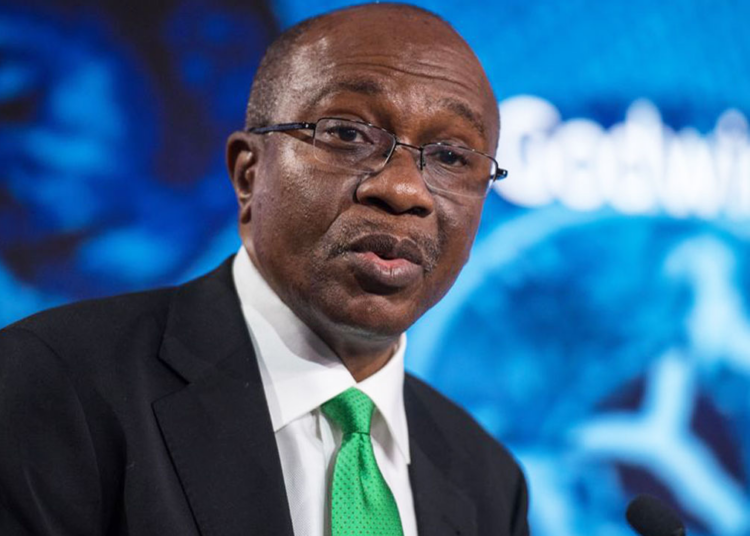The Monetary Policy Committee (MPC) of the Central Bank of Nigeria (CBN) is scheduled to hold the second meeting for the year today (Monday, March 20 and Tuesday, March 21, 2023) to decide on the monetary policy direction of the country, a decision many analysts say would be a continuation of its hawkish stance.
Analysts project that the MPC will further raise rate by 50 basis points to 18 per cent from the current level of 17.5 per cent, with a slight chance that the members may vote to maintain status quo so as not to push the economy overboard with overtightening.
Having embarked on a rate hike trend since last year, the MPC is expected to continue to tow this path as analysts envisage an easing on the rate at which it has been raising rates. Since May last year when it began raising rates, benchmark interest rate has risen by 600 basis points from 11.5 per cent to 17.5 per cent.
However, as the risks of over tightening of rates begin to rise globally, analysts say, they expect the committee members to slow down and may even consider a hold decision despite the rising inflation in the country.
Latest data released by the National Bureau of Statistics (NBS) showed that inflation for February had risen to 21.91 per cent from 21.82 per cent that was recorded in January. Governor of the CBN had last year mentioned that benchmark rate will continue to go up as inflation continues to rise.
At the first meeting of the year, members of the MPC voted to raise the policy rate by 100bps to 17.5 per cent in a bid to curb rising inflationary pressure. Although inflation had receded in December, the members had noted that the decline is not enough to halt its hawkish stance.
After the moderation witnessed in December, inflationary pressures rose for two consecutive months, settling at 21.91per cent in February from 21.82 per cent in January. The witnessed acceleration was partly a result of the persistent food shortages and the unprecedented Naira scarcity witnessed during the month as an upshot of the central bank’s redesigned Naira policy.
According to analysts at Cordros Research, the persistent increase in price pressures primarily reflects intermittent PMS scarcity and the associated fuel price increases and low food supply exacerbated by restricted access to fertilizer and high conflict incidences.
Across the globe, rising inflation has continued to be a front burner in most economies, including Nigeria, and escalating the price stability plans far from the hands of the monetary authority; an economic growth trade-off that analysts say may further drive the central bank’s position for an extended contractionary stance.
“While we envisage the Committee to express a positive outlook on prices as electioneering activities wind down, we expect members to urge the fiscal authority to sustain its real sector interventions and take decisive steps in tackling the contributory legacy factors limiting food production and distribution in the country.
“Global central banks’ tone suggests that they are gradually approaching the end of the interest rate hiking cycle although they cannot rule out the possibility of further smaller rate hikes than market expectations. Consequently, we think the MPC is now at a crossroads of navigating between the Scylla of pausing as risks of overtightening emerge and the Charybdis of hiking too much and watching the economy fall off a cliff.
“Perhaps, an optimal choice at this time is to guard against complacency about the domestic economy’s ability to bend without breaking and remain sensitive to data. Consequently, we lean towards a smaller hike, similar to the actions of central banks of developed economies. Accordingly, we expect the Committee to increase the MPR by 50bps and retain other policy parameters.” analysts at Cordros stated.
Analysts at Afrinvest West Africa, noted that, inflation rate has remained unresponsive to the CBN’s strategy largely due to the fault lines in policy transmission mechanisms, lack of synergy between fiscal & monetary authorities, and negative spill overs from the external environment.
Thus, the analysts anticipate that the MPC might further tighten the anchor rate by 50bps to 18 per cent, “premising its position solely on the renewed hawkish posture of global systemic central banks, stubborn domestic inflation, and the positive but modest domestic GDP growth outlook. However, we canvass that the MPC should shelve its unorthodox strategy which has made its policy tools mere signalling if inflation anchoring would be achieved.”
Also, analysts at FBN Quest note that, with the failure of Silicon Valley Bank in the United States and concerns about Credit Suisse’s financial stability in Europe, “we anticipate that the implications of monetary tightening on the financial soundness of Nigerian banks will be a key focal point of discussion for the MPC.”





